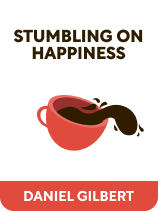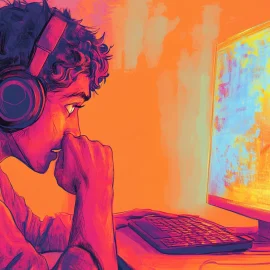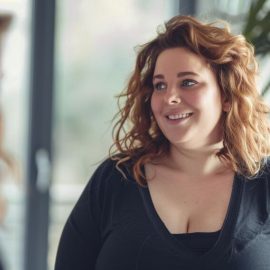

This article is an excerpt from the Shortform book guide to "Stumbling on Happiness" by Daniel Gilbert. Shortform has the world's best summaries and analyses of books you should be reading.
Like this article? Sign up for a free trial here .
Do you feel stressed out when you have too many options to choose from? Why does limited freedom actually make you happier?
People tend to think that the more choices they have, the happier they’ll be. However, an abundance of choices will actually make you unhappy because you’ll always doubt the decision you’ve made.
Here’s why having too many options creates a paradox.
Lack of Freedom Makes You Happier
According to social psychologist Daniel Gilbert, one type of poor choice you make concerns your desire for freedom: According to Gilbert, you opt for choices that grant you greater freedom in the future, when, in reality, the choices that limit your freedom make you happier.
You’re happier when you have less freedom thanks again to your automatic happiness-protecting response, writes Gilbert. This response triggers when you have little power and few options so that despite this adversity you can still be happy. However, you’re not aware this response will kick in. Therefore, you always make the choice that keeps your options open to avoid the discomfort you think lack of choice will bring.
In reality, having too many options makes you unhappy because you constantly doubt yourself, claims Gilbert: Should you choose A or B? Was A the right choice? Should you switch to B? When you’re not locked into a choice, your mind second-guesses, and this produces unhappiness.
Let’s look at an example: You’re deciding between an eight-year biology research program in a remote rainforest that you can’t leave for the duration of the program and an eight-year local program that you can leave if you don’t like it. Which program will you choose?
Most will opt for the second program because they feel it will make them happier in the future to have the option to quit. But, the first program will probably make you happier. Even if you’re initially miserable in the rainforest, your happiness-protecting response will kick in as a protective mechanism. You’ll thus derive meaning and joy from being in the rainforest—for instance, by believing that you’re growing as a person. Meanwhile, if you choose the other program, you’ll wonder if it was the right choice or if you should use your ability to quit and look for something better.
| Coping With Many Options Though Gilbert shows that choices that provide you with fewer liberties make you happier, most people won’t take those liberty-reducing options. Instead, they’ll make choices that give them the flexibility to choose something better later. Yet soon, those who’ve chosen the flexible option will need to make more choices: to stick with their first choice or to use the flexibility to make a different, better choice. In The Paradox of Choice, Barry Schwartz describes several strategies for dealing with such choice abundance: Don’t worry about what you’re missing. Instead, consider if you’re content with your existing choice. If you are, stop looking for better options. Once you’ve made a decision, stick with it. This is the happiness-maximizing response on a conscious level: recognizing the value of the choice you’ve made and being content that you’ve made it, regardless of what happens. Be grateful for the positive facets of your choice. Even if your choice isn’t perfect, there are undoubtedly some positive aspects to it. You’ll be happier if you’re thankful for those aspects. Using these active decision-making strategies can also help you more quickly adjust to a freedom-limiting choice—perhaps even before your automatic happiness-maximizing response kicks in. |

———End of Preview———
Like what you just read? Read the rest of the world's best book summary and analysis of Daniel Gilbert's "Stumbling on Happiness" at Shortform .
Here's what you'll find in our full Stumbling on Happiness summary :
- A look at how your brain fabricates your reality leading you to make bad decisions
- The six specific types of bad choices people make
- How to improve your decision-making in the future






